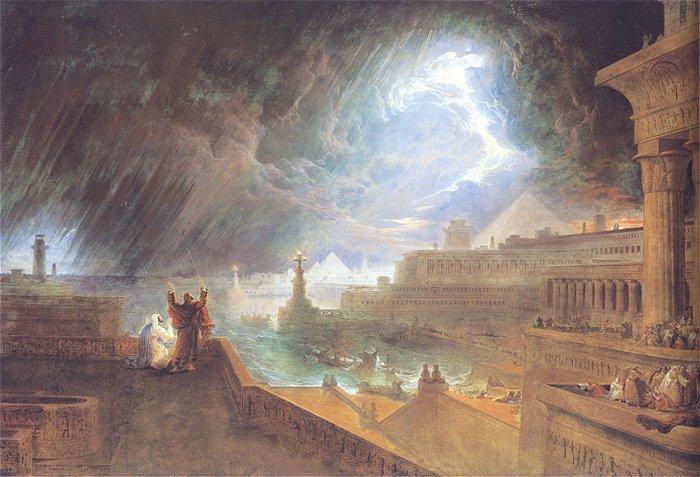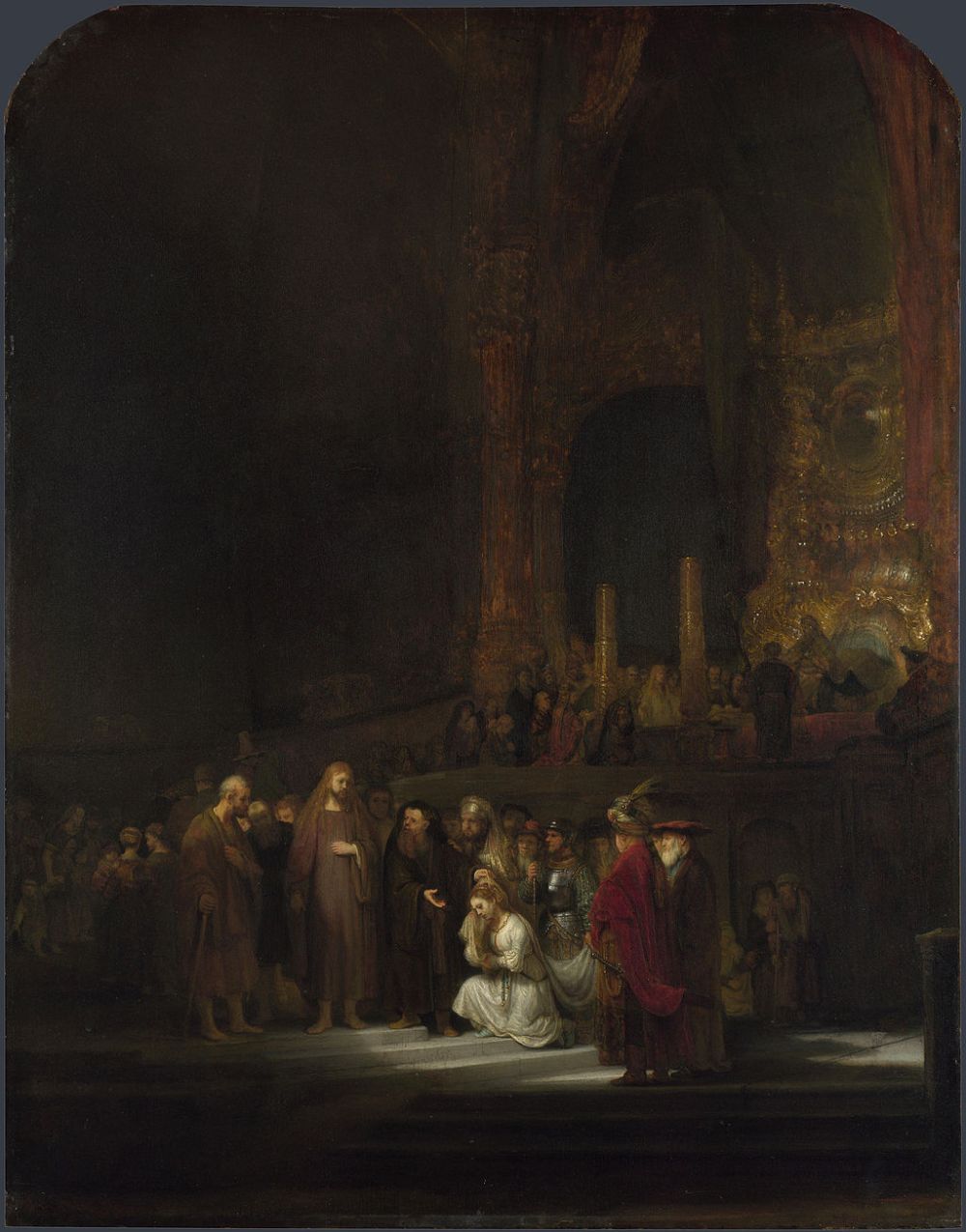Paul of Tarsus vs. Jesus of Nazareth?

Saint Paul by Bartolomeo Montagna, 1481
It’s been in vogue for the last 300 years to say that Paul crafted his own Jesus and used Him as a springboard for His own essentially Platonic philosophy. The argument goes that Paul, good Hellenistic Jew that he was, was influenced by Gnostic Redeemer myths. Rudolf Bultmann, who is a contender for the most-influential-theologian-of-the-20th-century title, was 50 shades of convinced. Today, however, this idea is losing ground as we struggle to actually locate specific examples of the elusive gnostic redeemer myths. But even as the academic community leaves behind the Gnostic-influence theory, the assumption that Paul distorted the original message of Jesus in order to turn Him into a cult god refuses to die. Scholars who hold this position draw a divide between “the Jesus of History” and the “Christ of faith.” The former was the poor and itinerant preacher/carpenter who left everything to preach an apocalyptic message to the poor in Palestine. The latter is essentially a Pauline invention that grafts outside ideas onto the Jesus character and adds depth and clarity to what Paul claimed was the meaning of His life, death, and purported resurrection.
Findings by E. Earle Ellis have made that a profoundly unlikely scenario. Ellis identified pre-Pauline creedal material embedded within numerous Apostolic writings. Notably, nearly all of Paul’s epistles contain some form of quotation from what is presumably an early hymn, creed, or prophecy. These quotations contain material that paint Jesus in the kind of exalted light that scholars often attribute to the creative additions of Paul, but which inevitably emanate from a tradition that pre-dates Paul. To illustrate, I have stitched together several of these pre-Pauline creedal quotations found in the Pastoral Epistles* to reconstruct what one of the early creeds might have looked like:
“Jesus Christ came into the world to save sinners.
He is the blessed and only sovereign,
The King of kings,
The Lord of lords,
The only one who has immortality,
Dwelling in unapproachable light;
No one has seen or can see Him,
To Him be honor and eternal might.
But when the goodness of God and His love for mankind appeared,
He saved us —
Not by works of righteous that we had done,
But according to His mercy,
Through the washing of regeneration
And renewal by the Holy Spirit.
He poured out this Spirit on us abundantly
Through Jesus Christ our savior,
So that having been justified by His grace,
We may become heirs with the hope of eternal life.
For if we have died with Him,
We will also live with Him;
If we endure, we will also reign with Him;
If we deny Him, He will also deny us;
If we are faithless, He remains faithful,
For He cannot deny Himself.
For there is one God,
And one mediator between God and humanity,
Christ Jesus, Himself human,
Who gave Himself — a ransom for all,
A testimony at the proper time.
Amen.”
What makes these findings significant is that they render much of the speculation about Paul’s role in the development of early Christian theology obsolete. Far from ‘inventing’ a whole slew of new ideas, he largely worked with the faith that he himself inherited from the earliest believers. It also demonstrates that the first century Christians were not so ‘primitive’ after all.
With this in mind, we’re in a good place to (finally) call the oft-purported chasm between Pauline-soteriological thought and Jesus’s ethical and eschatological teaching into question. Free from the modern orthodoxy’s insistence that Paul and Jesus taught competing worldviews, it quickly becomes apparent that, despite contrary claims by some, Paul and Jesus aren’t so different.
Not least among their similarities is that their teachings are often hyper-existentialized at the expense of preserving their common ethical commission. Bultmann and others helped to set this precedent, which ironically Evangelicalism now keeps alive. Whether it’s reducing repentance to feeling bad about sinning or reinterpreting the Sermon on the Mount as ‘high ideals’ to live up to, it has often been the case that western Evangelicals in the last few centuries have blunted the transformative force of the New Testament proclamation.
Baptist Ethicist Glen Stassen spent decades calling for a “thicker Jesus” amongst his Evangelical colleagues and brethren. It should come as no surprise, because the bulk of his research was oriented around the Sermon on the Mount. His work delves deeply into the radical social significance of Jesus’s life and teaching, and, in doing so, illustrates the heavy continuity between the life of Jesus and the ministry of Paul. Over against the disintegrating tendencies of both conservative and liberal scholars who hold the two at arms length, good hermeneutics (and faithful obedience to Jesus) demands that we recouple the two central voices of the New Testament. And that means that, in addition to Glen Stassen’s thicker Jesus, we need a thicker Paul.
And we’re in luck. Because as we are forced to lean into Paul more deeply and more sustainedly than before, we inevitably find that he only actually makes any sense in light of the life and teaching of Jesus. It is common and correct to read his work from the vantage point of Jesus’s death and resurrection, as Bultmann advocates. But it is incomplete to do only that. Every bit as much as Paul writes out of the overflow of the resurrection of Christ, he writes in the footsteps of His teaching and in imitation of His life. John Dominic Crossan once said, “If you read Jesus after reading Paul, you’ll read Jesus wrong. But if you read Paul after reading Jesus, you’ll read Paul differently.” I’m certain that Crossan would say that I read both Jesus and Paul wrong, but his point stands. The more deeply we entrench ourselves in the Gospel recollections of Jesus’s pre-Passion ministry, the more clearly we are able to hear Paul speaking. It is true that Paul can often be confusing. I say that in the company of his friend and occasional sparring partner, Peter (2 Pet. 3:16). But from the vantage point of the life and teaching and cross/resurrection of Jesus, Paul often speaks quite plainly.
For example, upon a close reading of his epistle to the Romans, it becomes clear that Paul had more in mind when writing the iconic epistle than simply imparting doctrinal knowledge. Evidently, his motivation was largely to repair the fragile and strained relations between the Jewish and Gentile believers in Rome and, by extension, throughout the Empire. He therefore crafts his entire theological argument around the movements of Israel’s history in such a way that God’s redemptive intentions toward the Gentiles is front and center – and in doing so, he illustrates that the unity between the two bodies is the inevitable outworking of God’s cosmic redemption. In the most immediate sense, he hoped to include the predominately Gentile Churches of Rome in the collection that he was taking up for the impoverished and persecuted churches in Jerusalem—most of whom were predominately Jewish. Paul was here putting a transforming initiative of Jesus into practice as a means of reconciliation in the Church. He seems to have been working off of Luke 14:12-14:
“He said also to the man who had invited him, ‘When you give a dinner or a banquet, do not invite your friends or your brothers or your relatives or rich neighbors, lest they also invite you in return and you be repaid. But when you give a feast, invite the poor, the crippled, the lame, the blind, and you will be blessed, because they cannot repay you. For you will be repaid at the resurrection of the just.'”
By indebting the Jewish churches—who largely looked down on their Gentile brothers and sisters—Paul would kick open the door for the Holy Spirit who indwelt both parties to smash the pretensions of the Jewish believers toward their Gentile brothers benefactors. Through including the Gentile believers in an act of holy love toward their Jewish brothers and sisters, Paul would make space for the Holy Spirit to fill them with the sort of love it requires for two groups who have long been in contention to be brought together under a common Messiah and in a common Spirit. This is only one example, but once you catch one, you begin to see them everywhere.
Given both a thicker Jesus and a Thicker Paul, the exegetical obstacles that have frozen New Testament scholarship in awkward limbo for centuries begin to melt away. In retrospect, there isn’t much of a dichotomy to be found between the “Jesus of history” and the “Christ of faith.” But there are certainly irreconcilable differences between the Jesus-soaked Paul of history and the neo-Platonist Paul that emerged in the writings of the post-Schleiermacher scholars. What we’re facing is not struggle between theological conservatism and theological liberalism, but a failure on the part of both conservative and liberal New Testament scholars to adequately synthesize the non-competing teachings found within the epistles of Paul and the canonical Jesus tradition of the four gospels. When approached honestly, it is apparent that Paul of Tarsus only really makes sense in light of Jesus of Nazareth. Paul did not hijack Jesus in order to build a theology; Paul was hijacked by Jesus in order to build a Church.
*Note: The Pastoral Epistles consist of 1 & 2 Timothy and Titus. I am aware that they are often assumed to be inauthentic by scholars both conservative and liberal for a number of reasons. However, the arguments for their inauthenticity are bad. Like, really bad. I’m willing to bet that within a decade or so, we’ll have outgrown the notion that somebody else forged the documents in Paul’s name. I’ll probably write about this in the near future.





 The Last Supper by Juan de Joanes
The Last Supper by Juan de Joanes  Christ and the Woman Taken in Adultery by Rembrandt
Christ and the Woman Taken in Adultery by Rembrandt  The Incredulity of Saint Thomas by Caravaggio
The Incredulity of Saint Thomas by Caravaggio